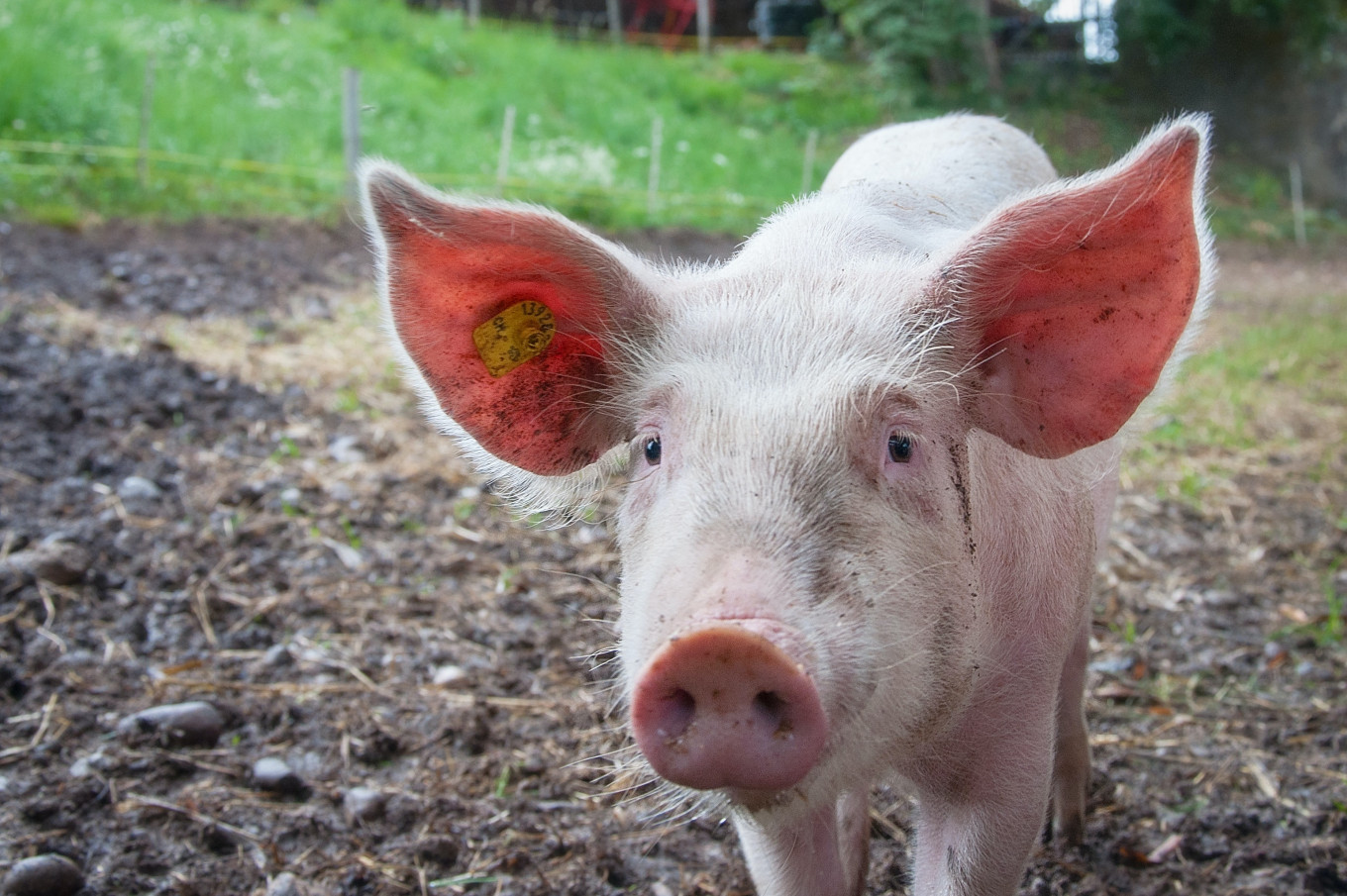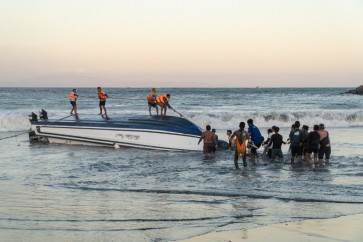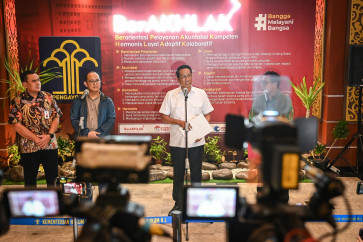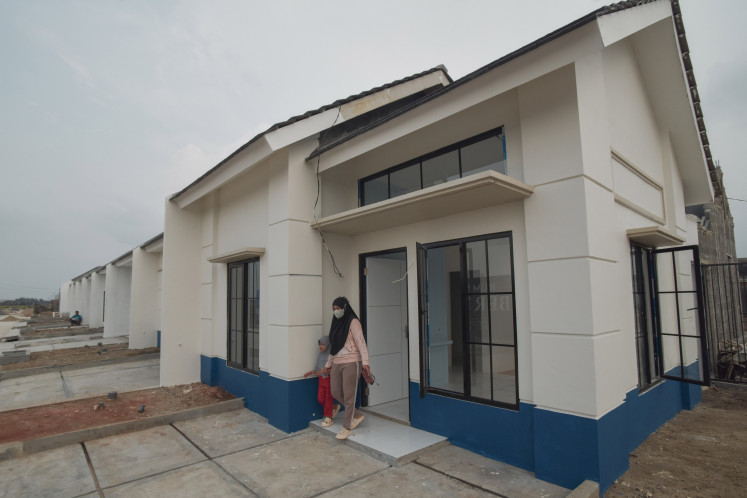Popular Reads
Top Results
Can't find what you're looking for?
View all search resultsPopular Reads
Top Results
Can't find what you're looking for?
View all search resultsSwine fever poses major threat to RI pig farms
An industry association has warned that the deadly virus could infect up to 90 percent of the country’s livestock population of pigs, following its discovery in Riau Islands province.
Change text size
Gift Premium Articles
to Anyone
T
he Indonesian Monogastric Association (AMI) has warned of prolonged disruption to the country’s pig industry, following the discovery of African swine fever virus (ASFV) in Riau Islands province that prompted a halt in live exports to Singapore.
“Any ASFV case is a major case. As for recovery, it takes at least four years to get back to normal,” AMI chairman Sailand Sinaga told The Jakarta Post on Thursday.
He expressed his concern that the virus could infect 90 percent of the livestock population of pigs. “Herd mortality from the ASFV is radical. When one farm is infected, it must make sure the farm is completely free of the virus before it can start raising livestock again.”
Sailand said he was not surprised to hear about the latest outbreak of African swine fever (ASF), the disease caused by the virus, as ASFV in the past had spread across a number of pig farms in other provinces like Central Java, East Nusa Tenggara, Sulawesi and North Sumatra.
“I’m more confused as to how Bulan Island could have been affected, given its heavily guarded access and the location of big businesses,” he continued, referring to an island just southwest of Batam Island.
“Further investigation is needed to ascertain whether other animals have entered the [region]. It could be that the virus was transmitted by animals that roam there. If a small island like Bulan can be affected, imagine bigger islands like Java and Sumatra,” he added.
Sailand explained that the only way to stop the outbreak was to cull all affected and exposed animals. “Test and check in every shed, feed and feces for ASFV. After that, a farm must [stand] empty for at least six months before it can start over,” he said.
“The government has not provided vaccines for ASFV, but for now there is an ASF convalescent serum from Surabaya that can be useful [to prevent infection],” said Sailand, who is also in the pig farming business.
No vaccine is currently available against ASF.
The Agriculture Ministry’s Agricultural Quarantine Agency and Directorate General of Animal Husbandry and Health, in collaboration with the Singapore Food Agency and the island state’s National Parks Board (NParks), have found that many of the dead pigs on Bulan Island showed clinical symptoms indicating classical swine fever (CSF), also called hog cholera, according to a statement from the Indonesian government.
However, "the results of testing by the [Agriculture Ministry’s] BBUSKP Laboratory and BVet Bukittinggi [veterinary center] were positive for ASF and negative for CSF, so sequencing is needed to determine the virus genome," explained Wisnu Wasisa, who heads the Agricultural Quarantine Agency’s Center for Animal Quarantine and Biosafety.
The government has announced that it plans to test for ASF, tighten quarantine measures and monitor shipments of animal feed and feed ingredients to the island.
Agency head Bambang said in a press statement on Thursday that the government would take three follow-up measures, including "further internal investigation on risk management and risk mitigation measures to be reported to the Animal Health Directorate and the Animal Husbandry and Health Directorate General, and a report related to pig deaths and animal health on Bulan Island filed with quarantine officers".
ASFV has no impact on human health, though it is fatal for pigs and boars. The virus cannot be transmitted from infected animals to people or through human consumption of meat from infected animals.
Bulan Island is the largest pig production center in Indonesia and exports some 1,000 live pigs each day to Singapore, contributing 15 percent of the island nation’s pig imports.
Last year, Singapore accounted for US$61 million of $85 million in live swine exports from Indonesia.
Most live swine are exported through ports in Batam, which shipped pigs totaling $290 million over the past five years.
When asked how long the import suspension may last, the Singapore Food Agency told the Post: “Currently, the investigations are still ongoing. SFA will issue another release on the updates once the investigations are done.”










